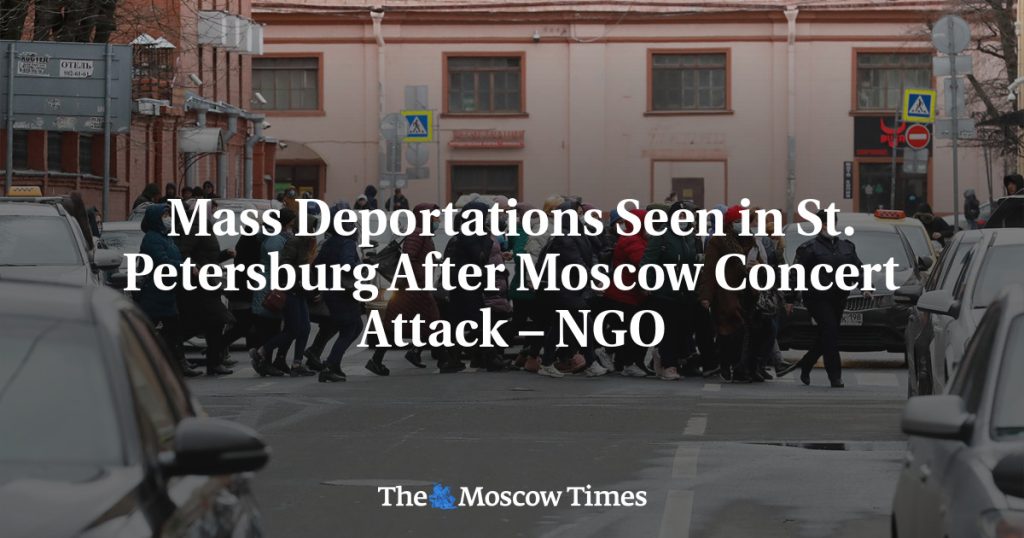Following the deadly attack on a concert hall in Moscow, authorities in St. Petersburg have been conducting mass deportations of migrants. The legal rights group Perviy Otdel reported that more than 64 foreigners were deported from the city’s Vyborgsky district in one day alone. Temporary detention centers are reportedly full, and buses are transporting migrants to the airport for deportation. The countries where the migrants are being sent to were not specified, but it is common for labor migrants in Russia to come from poor Central Asian countries.
The mass deportations in St. Petersburg are part of an operation referred to as “Operation Anti-Migrant” by bailiffs. Raids are being carried out at local hostels and apartments, targeting migrants who are living in the city. Similar deportations have been reported in Moscow and other Russian cities, as anti-immigrant sentiment has surged following the attack at the concert hall. The gunmen involved in the attack were identified as Tajik nationals, leading to increased scrutiny and suspicion of migrants from Central Asian countries.
In addition to the Tajik nationals involved in the attack, four other suspects from Tajikistan have been placed in pre-trial detention, along with another suspect from neighboring Kyrgyzstan. The Islamic State affiliate ISIS-K has claimed responsibility for the massacre, but Russia has blamed radical Islamists, Ukraine, and its Western allies for the deadliest attack in the country since the 2004 Beslan school siege. The attack has fueled tensions and fears surrounding immigration and security in Russia, leading to the crackdown on migrants in major cities like St. Petersburg.
The mass deportations of migrants in St. Petersburg are a stark response to the recent attack and a reflection of the growing anti-immigrant sentiment in Russia. The increased security measures and raids targeting migrants living in the city are part of efforts to prevent further violence and ensure public safety. However, these actions also raise concerns about the rights and treatment of migrants who may be unfairly targeted or associated with the attackers. The deportations highlight the challenges faced by migrant communities in Russia, particularly those from Central Asian countries who come to seek work and opportunities in the country.
As tensions escalate and investigations into the attack continue, the repercussions are being felt by migrant communities in Russia. The mass deportations in St. Petersburg and other cities are a response to the security threat posed by the attack, but they also reflect deeper issues of discrimination and prejudice against migrants. It is crucial for authorities to balance the need for security with respect for the rights and dignity of all individuals, regardless of their nationality or background. Moving forward, addressing the root causes of violence and extremism is essential to preventing similar tragedies and promoting inclusivity and tolerance in Russian society.


